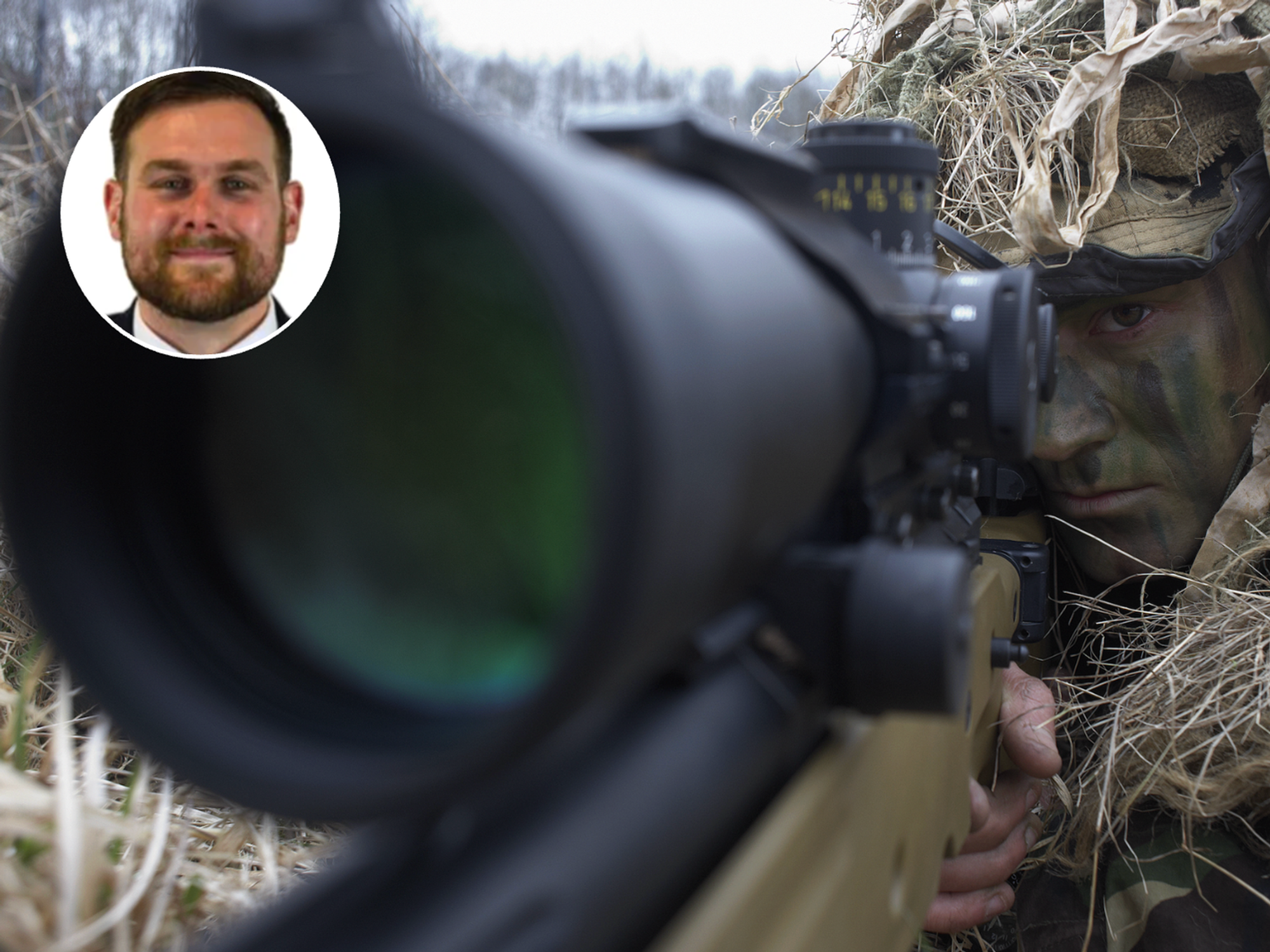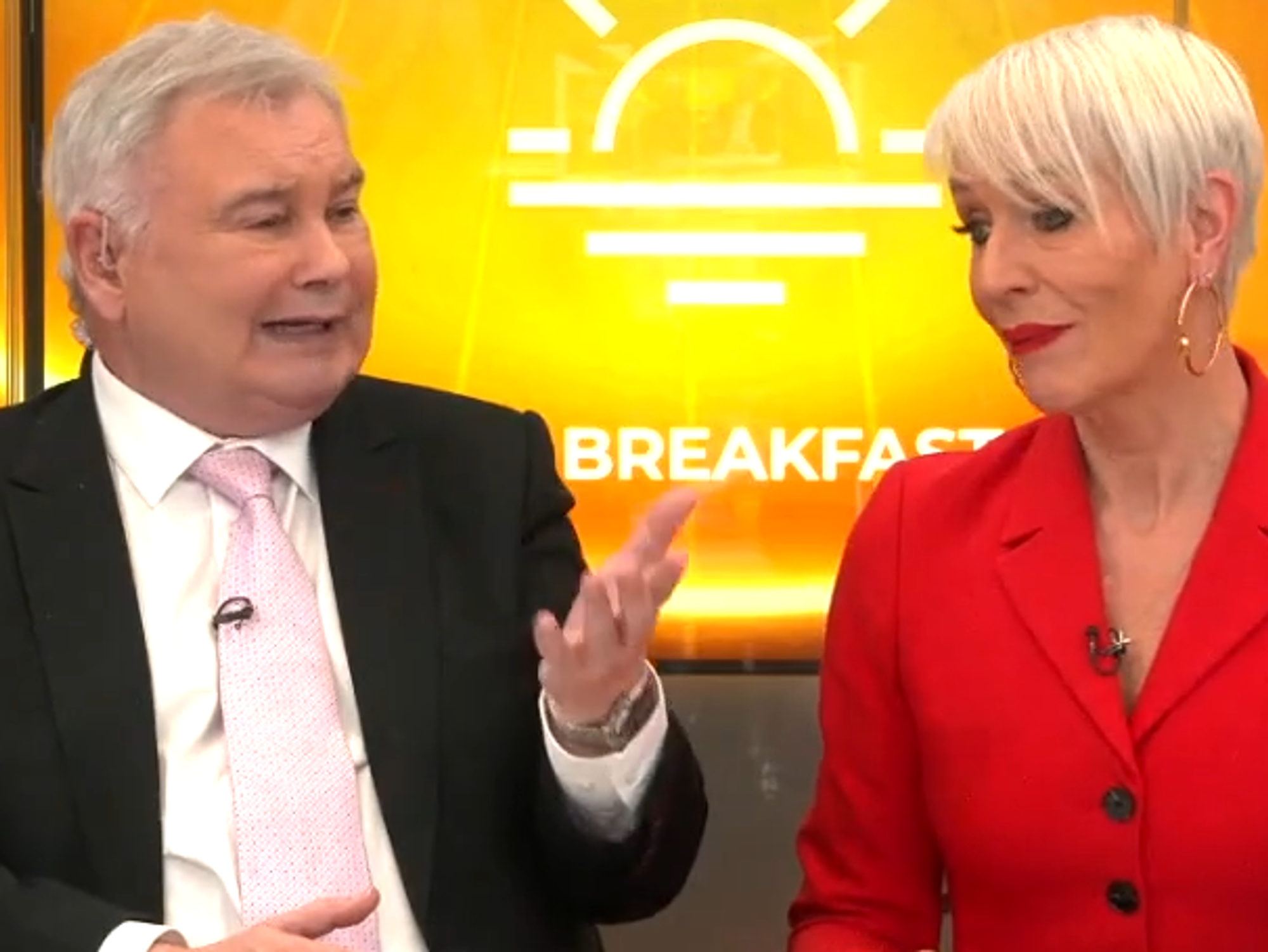‘Self-service scanners are headed for the skip - Let’s bring back great human customer service’, says Bev Turner
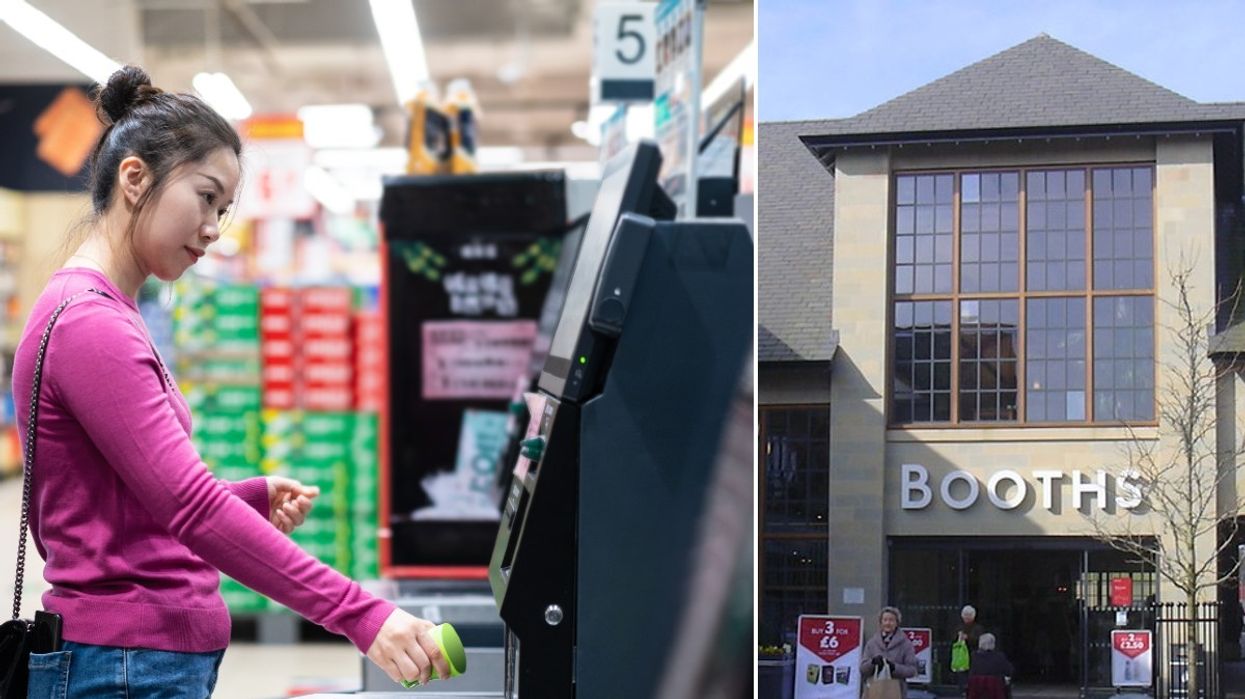
‘Self-service scanners are headed for the skip - Let’s bring back great human customer service’, says Bev Turner
|Getty Images/Flickr

Booths are removing self-service machines from all but two of their 28 stores
Don't Miss
Most Read
Latest
Historians will one day look back at self-service checkout tills and conclude that they symbolised the lowest point in human history. Invented by an impatient queuer, Floridian David R Humble in 1984, these evil machines became popular with shop-owners (but not customers) in the 1990s and by 2013 there were over 200,000 in stores worldwide.
In 2021 – with cash and human beings suddenly viewed as virus-spreaders - the market expanded by 11 per cent but terminals that accepted cash dropped to just 39 per cent of shipments.
But good news - northern-based supermarket chain Booths just helped put a minor dent in these figures by becoming the first vendor to ditch the robots and bring back humans; responding to customer feedback that self-service tills are the work of the devil. They are removing them from all but two of their 28 stores across Lancashire, Cumbria, Cheshire and Yorkshire.
It can be no coincidence that this decision was made in countries known for their common-sense matriarchs, a certain type of woman who can change the world with a clipboard and a jay cloth. I am sure that both customers and supermarket workers channelled their people power and got the bosses to chuck the offending metal monsters on the skip.
WATCH HERE: Shopkeepers to wear bodycams to prevent shoplifting
Of course, we all remember when these automated tills held a little novelty appeal: eliciting a satisfying beep from your goods was like playing shop, until you realised that not only were your groceries no cheaper, you were actually being mugged off by doing someone else’s job but not getting paid for it.
How very convenient: for the retailers.
Repeated customer satisfaction surveys prove that although shoppers are attracted to the lie that they will be checking out more quickly, by the time they have been age-verified for a bottle of wine; given the green light to use their own bag or assessed as a suicide risk for two packets of paracetamol, the whole encounter has been a blood-pressure-rising fight against the march of modernity.
Retail experts confess that the tills are statistically no faster than in the days of multiple manned conveyor belts. But you’re unwittingly manipulated by a handy phenomenon known as “wait-warping” – being actively involved in the transaction, it appears to progress more quickly. How very convenient: for the retailers.
LATEST DEVELOPMENTS:
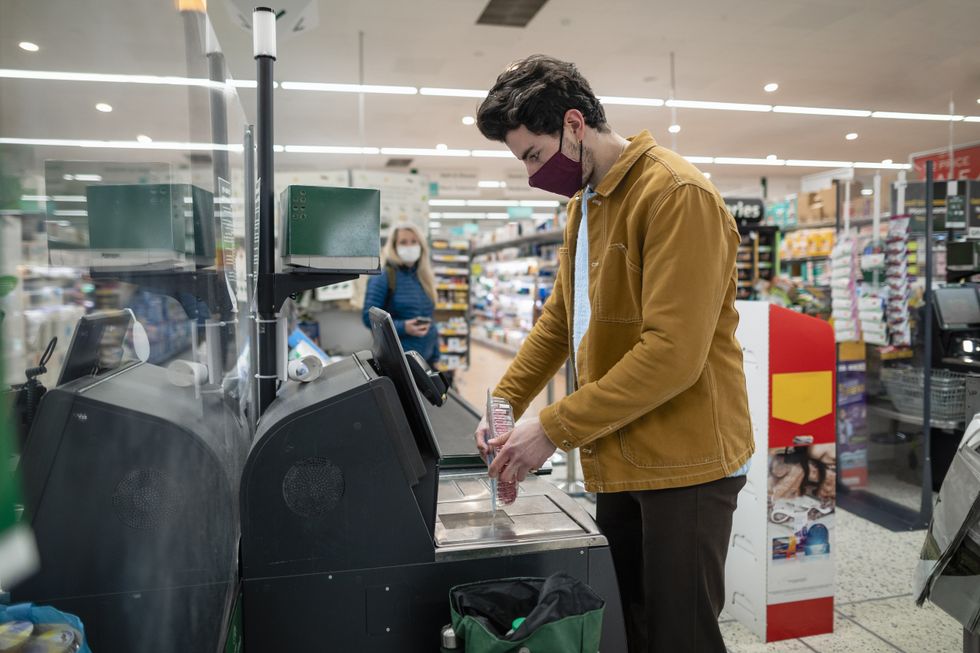
Man uses self-service scanner
|Getty Images
But it takes more than this to fool some people and so vendors have invested in plenty of strategies to increase our liking for self-service. A popular tactic is to position the tills closer to the exit, providing the subtle suggestion that your transaction will be faster. And they appeal to our inner glutton. In a 2004 experiment, McDonald’s found that we spend an average of 30 per cent more when we're not fretting about the person behind the cash register raising an eyebrow when we ‘go large’ or order dessert.
And it must surely be coincidental that the cash dispenser is inconveniently placed beside your kneecap and when cashback is issued (only after the receipt), it emerges from a different area of the machine. This befuddling system results in as much as £2.5million a year being left in self-service dispensers. How very convenient: for the retailers.
The recent spike in shop-lifting can largely be attributed to people stealthily swiping extra items into their bag and wafting out without anyone noticing. The solution? A camera pointed right at your face, whether you like it or not, reflecting the image straight back at you – another technique devised by retailers hoping to manipulate you into feeling guilty for nicking. You should feel guilty for nicking. But why don’t the vendors realise that nicking was virtually impossible when you had to pass each item through the hands of the cashier? In their efforts to cut the staff wage bill, supermarkets have simply replaced one cost with another.
Booths with its iconic shopping bags with statements such as ‘Preston, not Heston,’ ‘Cumbria not Umbria’ and ‘Eat Barm and Carry On’ already had a special place in my heart. Self-catering family holidays in the Lake District became fine-dining experiences thanks to their Windermere branch.
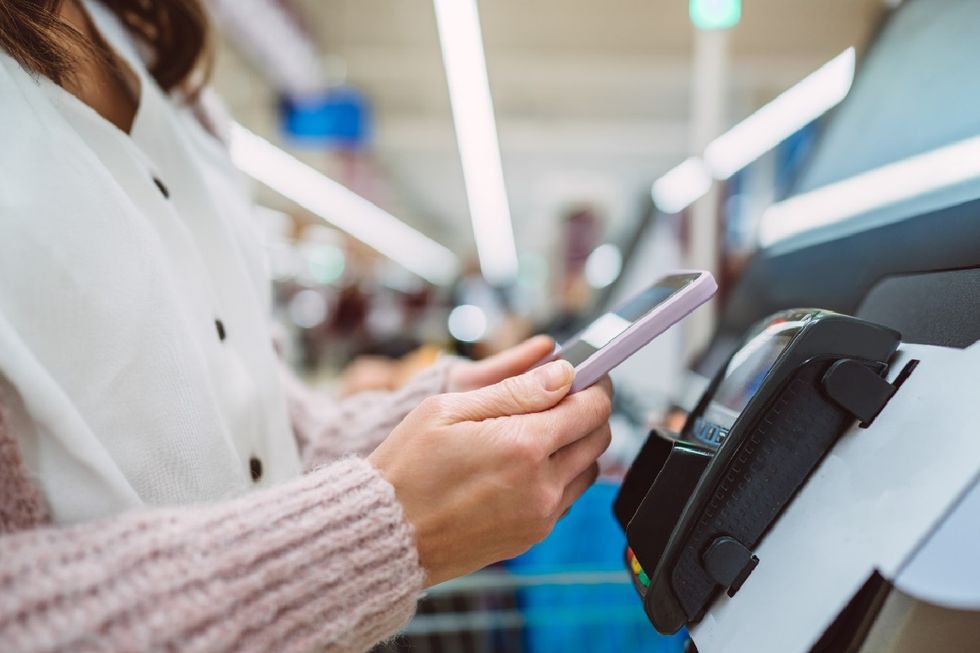
Booths with its iconic shopping bags with statements such as ‘Preston, not Heston,’ ‘Cumbria not Umbria’ and ‘Eat Barm and Carry On’ already had a special place in my heart
|Getty Images
On one memorable occasion, I sent my then-husband out to collect some utter delights from their extraordinary cheese counter and he returned with a tale of bumping into actor Warwick Davis who asked him to pass a carton of custard from the top shelf. This is the kind of magic that happens at Booths – a 6’4” Olympic gold medallist helping the world’s most famous actor-of-restricted-growth. And nobody batted an eyelid. It takes more than that to surprise hard-to-impress Northern fell-walkers looking for some Kendal mint cake.
But Booths are not only showing compassion to customers and the local workforce, they are providing a service to humanity: in 2022, 49.63 per cent of adults (25.99 million people) in the UK reported feeling intermittently lonely. This increases with age. The elderly, especially can go days without talking to anyone except the person at the check-out. Self-service is self-defeating as we slide inexorably towards a detached, technological, depressed future.
Booths managing director, Nigel Murray, told the Grocer, “We pride ourselves on great customer service and you can’t do that through a robot.” I think I want to marry Nigel.
Another spokesperson for the family-owned business said: “Delighting customers with our warm northern welcome is part of our DNA and we continue to invest in our people to ensure we remain true to that ethos.”
Booths – owned by the same family since 1847 - have put people back at the heart of their business: and as any business guru will tell you: firms that looks after their people will find that the pounds look after themselves. Let’s hope the unexpected item in the bagging area is – once again – a human being.
Because that would be very convenient: for the customer.







